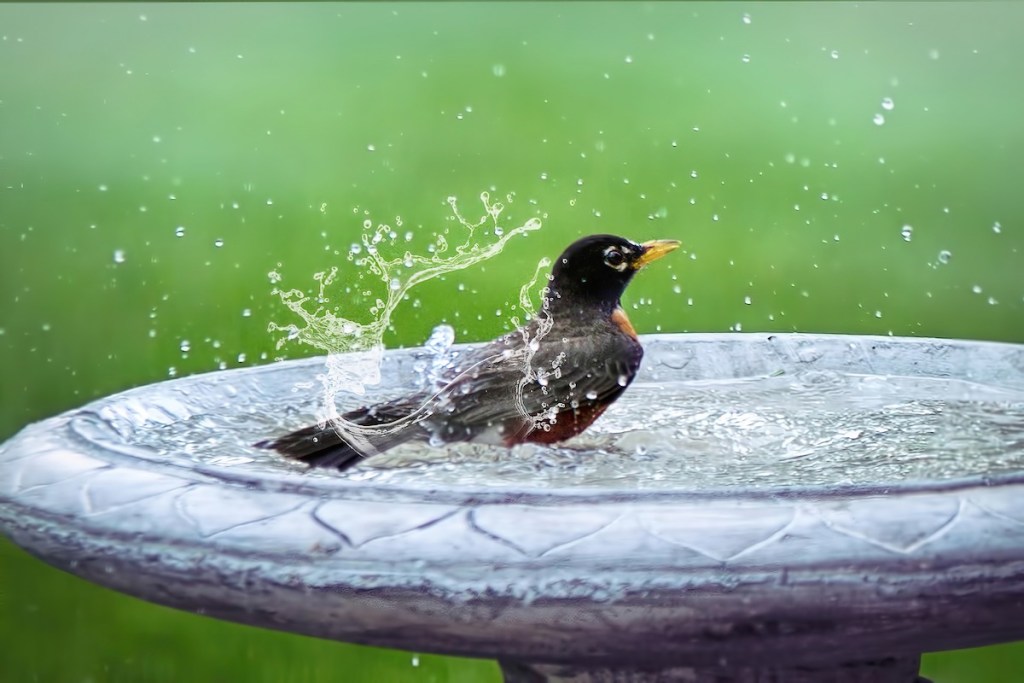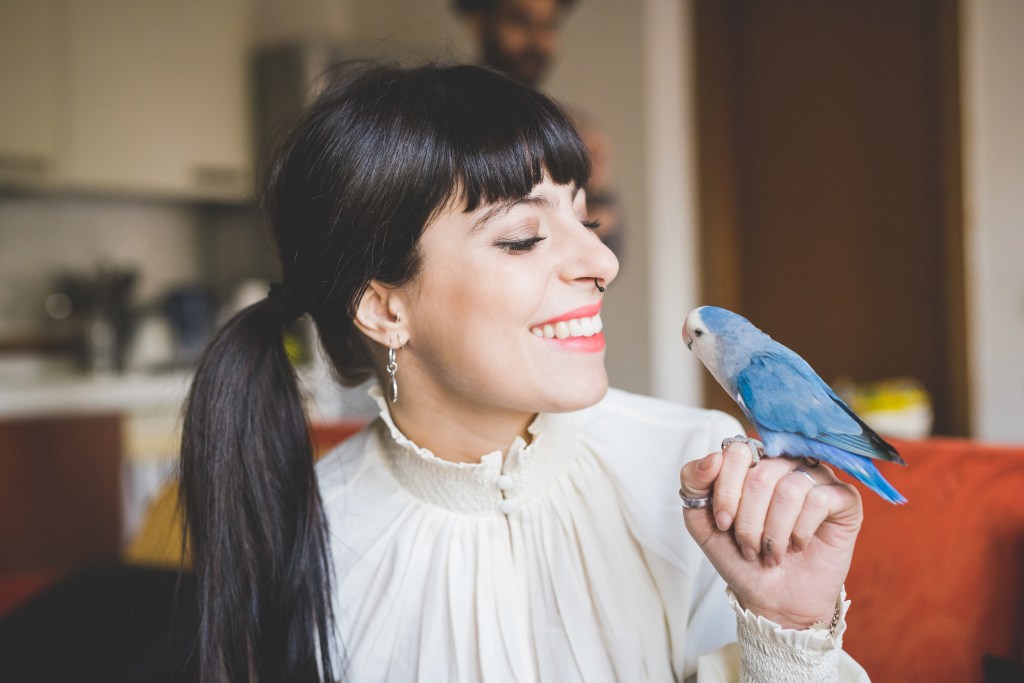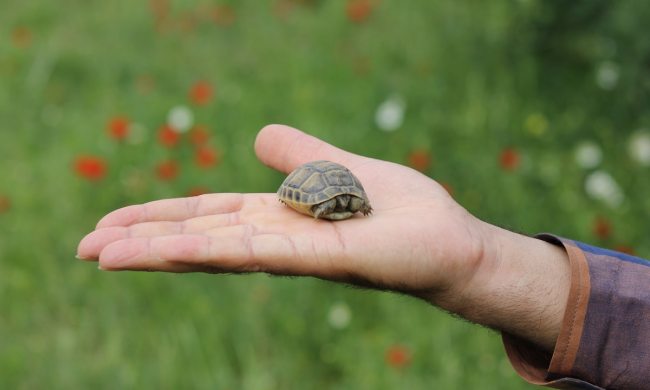Picture the iconic birdbath, decorative and inviting to the neighborhood flying visitors. While it’s important for feathers to never get completely drenched, most birds (both inside and outside ones) love a chance to get their wings clean now and then. For birds, there are two types of baths: dust and water. You can easily make your own dust bath and offer it to your pet during playtime. You can’t really overdo it with dust baths as long as you don’t force her. Water takes a bit more finesse. If you notice your bird try to dunk in her water or the sink, that means it’s bath time. And when you bathe her, this is what you need to know to wash your bird.

Can you give a bird a bath?
Definitely. Birds bathe in the wild and they like to at home as well. You can use a few methods here to let your bird rinse. Try them out when you first bring her home and see what works for the both of you. In all these options, you’ll skip the cleansers and let her do the washing herself.
Shower
We love this option because it’s so easy. Choose a time you’ll already be in the shower and let her come with you. Lots of birds enjoy the sound of falling water and will jump right in. You can add accessories as well, like perches, to help her navigate. Make sure the water is a little bit chillier if you normally take blazing-hot ones. Warm but not hot is better for our animals.
Bowl
You can mimic those lovely birdbaths in the comfort of your home. Find your widest bowl and fill it with just a couple of inches of water, less if you’re bathing a small bird like a parakeet. Then, allow her to fly into it and wade to her heart’s content. Skip the toweling and instead let her shake and preen the water off.
Sink
The sink lets you combine a mini shower with a bowl full of water. Fill up a few inches and then let her come in and splash around. As it starts to cool, turn the tap back on to a trickle and see if she likes it. Lots of birds want a combination of still and moving water for best bathing results.

How do you clean bird feathers?
Be mindful that the natural oils on your bird do most of the work, and unless they get something really bad on them, you can stick with water (or dusting) without the use of bird shampoo. However, when birds get into something really gross like cleaning materials, honey, or oil, you’ll have to break out the soap. Find something pet-friendly and use as little as possible. Otherwise, the water is really just helping them preen themselves. Your bird will want to pull her own feathers and use her beak to clean up. Only ever yank a feather if it’s already completely dislodged and dangling in a hard-to-reach area, like her backside.
Can I spray my bird with water?
Yes, please do — gently, of course. Your parrot probably hails from a faraway tropical location known for its warm temperatures and high humidity. Therefore, she will enjoy being misted by warm (but not steamy) water. In addition to the shower, you can use a spray bottle (don’t add anything) to keep her moist. Mist it above her, high enough that she’s not being rained on. Most birds will not enjoy being squirted, so adjust your spray settings to the lightest level and mind her eyes and face as you do so. If she’s not into it, she’ll walk away.
Bathing your bird might seem like a chore at first, but we bet you’ll start looking forward to it. It’s easy and fun to let your pet take her baths, and she requires little attention while doing so. Many bird owners perform this ritual weekly, but your animal might opt for something less frequent. Give her the chance to get into the water at least twice per month, so those colorful feathers stay bright and shiny, with additional bathing opportunities as needed. Also, birds should always be bathed during a molt since her new feathers need some attention and her skin will be itchy. She’ll thank you for that one.



